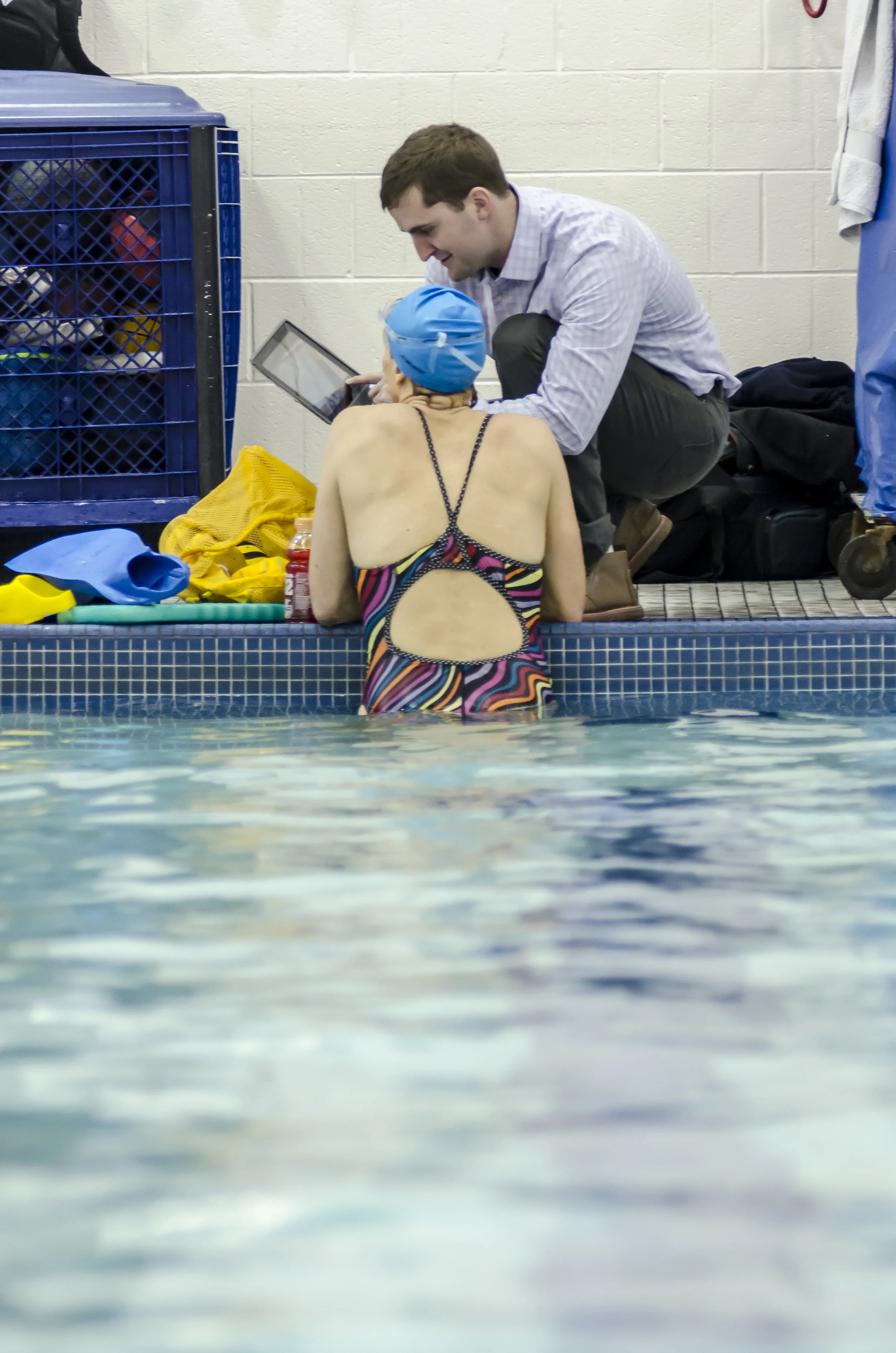NC State can win a men's NCAA title in a couple weeks. That will be a remarkable achievement in a sport where just moving into the top ten is a monumental achievement. One thing that often gets lost when evaluating coaches of any teams is that we focus on the fastest swimmers of the team.
When I look at what the NC State coaching staff has done, I'm more interested in the swimmers that, given average college coaching, were not likely to develop as much they have in Raleigh. Here are four swimmers who have showed incredible improvement for the Wolfpack:
Adam Linker- Linker was a decent power conference distance prospect coming into NC State. He recorded a 15:32 in the 1650, 4:32 in the 500 and 3:58 in the 400 IM.
All those times suggested he could grow into a solid scorer at the ACC conference level. Instead, in four years Linker has made the leap to an NCAA scoring level. His times from the most recent ACC Championships: (4:13.9 in the 500, 14:44 in the 1650) would have put him in top eight scoring position in all three of those races at last year's NCAA Championships.
Derek Hren- An early weakness of NC State's surge was breaststroke. Their breaststroke leg on medley relays stopped them from being truly competitive at the national level.
While the Wolfpack still haven't gotten a true breaststroke prospect on campus, in the meantime Hren has had a development nearly as impressive as Linker. Again, his high school times (55.5 in the 100 breaststroke) suggested he would be an ACC scorer.
Hren has improved three years in a row, and is likely to make that four years at the NCAA Championship. With a personal best of 52.2, he has a good chance of scoring at the meet. His relay performances are consistently good and with three other top notch legs, NC State can compete in medley relays.
Alexia Zevnik- I know I said I wouldn't focus on stars, but Zevnik's progression is too good to ignore. While she definitely had some solid backstroke swims in SCM her final year in Canada (1:00/2:13), those are not the typical incoming times of someone who will contend for an NCAA title their senior year.
Like the two swimmers already mentioned, Zevnik has made a big push forward every year. Rough conversions of those SCM times indicate around a 54/2:00 backstroker coming into college. Where is she now? 50.8 and 1:49.6. How many swimmers do you think enter college at above 2:00 in the 200 backstroke and finish with a performance under 1:50?
Natalie LaBonge- You may be tired of hearing it, but once again here is an example of an NC State swimmer who with average coaching might not have even scored at ACCs. Labonge's incoming times, 23.5 in the 50 and 51.1 in the 100, would have been well outside of scoring at the 2017 meet.
She could have even shown some progression and still missed being a conference scorer. It took 22.8 and 49.5 to score at the ACC meet this year. But LaBonge had more than "some" progression. She swam 22.0 and 48.6 in her senior year, and that progression has paved the way for Wolfpack coaches to get better sprint recruits in classes that came after hers.
I know it's becoming fashionable to hate NC State as they turn the corner from lovable underdogs to hate-able frontrunners. I simply can't find any hate for the awesome coaching and development taking place in Raleigh.



